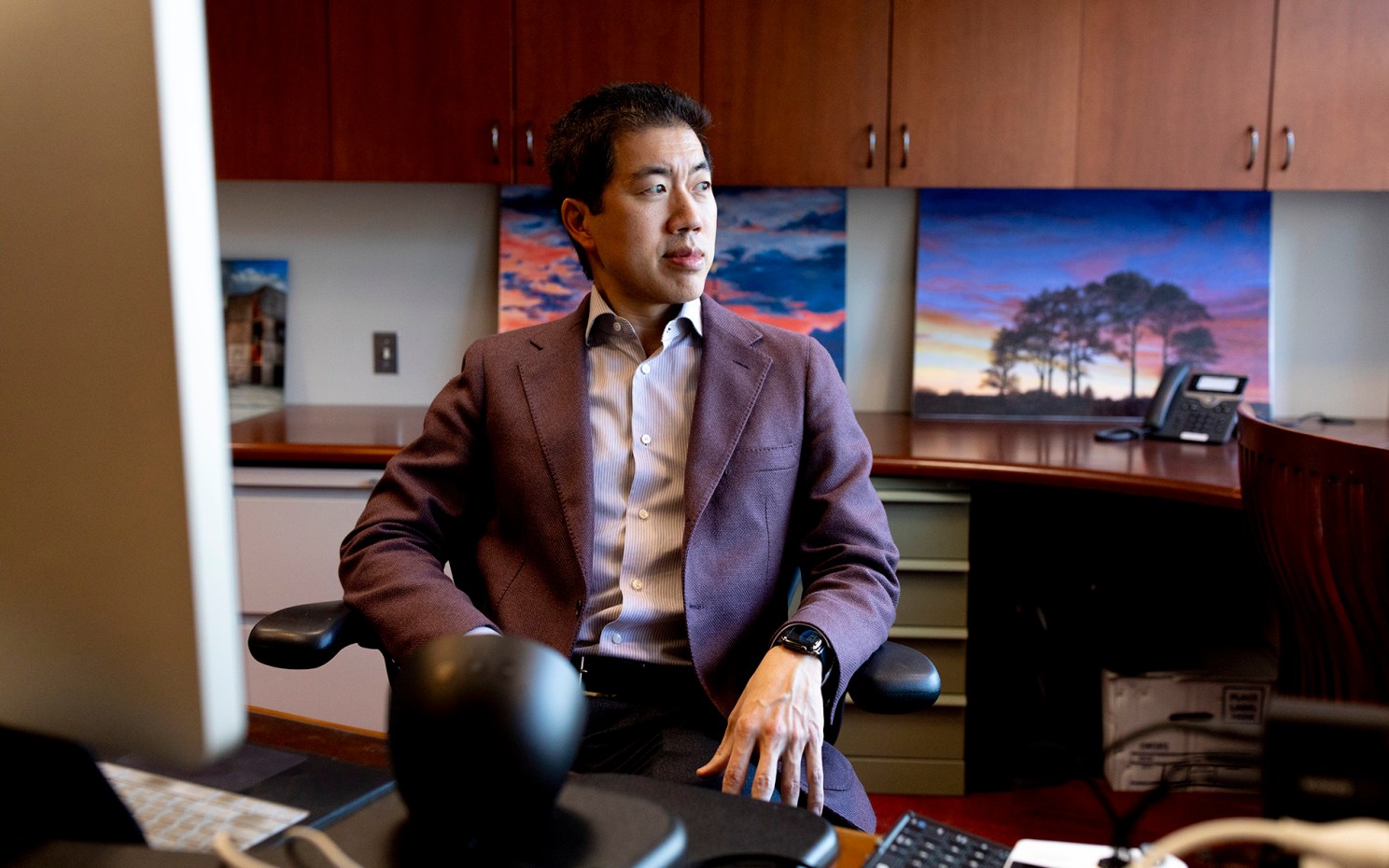
Professor of Medicine Joel Habener.
Veasey Conway/Harvard Staff Photographer
Health
How just a fishing expedition helped lead to GLP-1
Story of game-changing therapy illustrates crucial role of fundamental research breakthroughs
Sometimes an important discovery springs from a fishing expedition. In Joel Habener’s case, it was an actual one.
More than three decades after the discovery of GLP-1, the hormone has transformed the treatment of obesity, diabetes, and cardiometabolic disorders that affect more than a billion people worldwide. Habener, Svetlana Mojsov, Daniel Drucker, and Jens Juul Holst — scientists who played a crucial role in the hormone’s discovery and characterization — have received some of the biggest awards in science.
But more than three decades ago, when Habener, Massachusetts General Hospital and Harvard Medical School investigator emeritus, set up an experiment that helped lead to the discovery, this outcome was far from clear.
“It’s just been one surprise after the next,” Habener said. “It’s amazing to me.”
The unique pancreas of an ugly fish helped accelerate a revolution in modern medicine.
Back in the late 1970s, Habener’s goal was to identify possible prohormones — precursors of hormones — for the pancreatic hormones glucagon, which raises blood sugar, and somatostatin, which inhibits both insulin and glucagon.
He and MGH investigators P. Kay Lund and Richard H. Goodman decided to use recombinant DNA gene cloning to isolate these prohormones from the pancreases of rats, but they ran into a problem. The National Institutes of Health, which helped fund this fundamental research, had declared a moratorium on recombinant DNA research in warm-blooded animals as scientists evaluated ethical and safety concerns of the new technology.
“The solution to the problem,” Habener said, “required a fishing expedition.”
A member of his lab knew a commercial fisherman who had provided research specimens for other scientists. The anglerfish was raised as a possibility “because the anglerfish is a trash fish,” Habener said. “We throw them back. And they’re big, and they’re ugly.”
It was also cold-blooded and therefore exempt from the NIH moratorium.
The anglerfish turned out to be a boon for Habener’s research. While endocrine and exocrine tissues exist together in a rat’s pancreas, the two types of tissue are separated in anglerfish — with endocrine cells in a marble-sized organ called the Brockmann body. The separation made isolating the mRNA, and the peptide hormones and their precursors, easier.
After extracting mRNA from the Brockmann bodies, Habener and his team were surprised to find that glucagon and somatostatin were embedded in larger proteins that later cleaved into their active forms.
“The eureka moment,” as Habener puts it, was when they discovered that in the larger precursor protein proglucagon, there was a signal peptide, an intervening peptide, a peptide that was homologous to mammalian glucagon, and then a second GLP-related peptide later revealed to be GLP-1.
It took many more fundamental breakthroughs before this discovery could translate into therapeutic use. Mojsov, now a research associate professor at Rockefeller University and then a member of MGH’s endocrine unit, identified the biologically active form of GLP-1, known as GLP-1(7-37).
Holst, a University of Copenhagen professor, discovered that GLP-1 acts as an incretin hormone, stimulating insulin secretion in response to food.
Drucker, a clinician scientist at Sinai Health’s Lunenfeld-Tanenbaum Research Institute — and a former member of Habener’s MGH research group — uncovered more of GLP-1’s physiological actions and helped translate GLP-1’s therapeutic benefits to drugs.
The impact of GLP-1 drugs might seem like a given today, but Habener knows that some of the federally funded developments that led there were far from preordained.
“I think the word is serendipity,” he said. The unique pancreas of an ugly fish helped accelerate a revolution in modern medicine.




